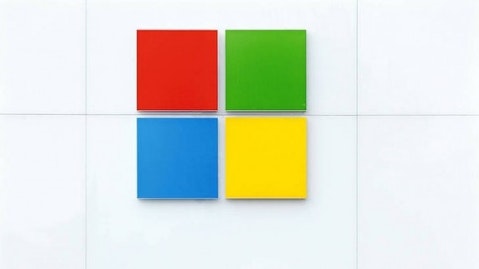Most investors know the story of Microsoft Corporation (NASDAQ:MSFT) by now: if you believe the naysayers, the company’s best days are behind it. The stock is only just now making a meaningful move upward after spending an entire decade languishing.
Add in the fact that most financial pundits have declared the Personal Computer to be dead, and it should be abundantly obvious that Microsoft Corporation (NASDAQ:MSFT) should be sold. But is the story behind the world’s software king really that simple? Or are there more positive catalysts than the company’s detractors are willing to admit?
A cool decade, and a scorching 2013
After famously spending years providing little in terms of share price appreciation, Microsoft shares have finally begun to break out. The stock is up 31% just this year, not even including dividends, at its recent price of $35 per share.
There are a few catalysts likely behind this move, including the company’s steady underlying results as well as the upcoming release of the Xbox One gaming console.
I’ve written critically of the latter idea. I think optimism surrounding Microsoft Corporation (NASDAQ:MSFT) is misguided if it is centered on the new console. That’s because the truth is that the Xbox simply doesn’t matter that much for Microsoft.
Microsoft’s Entertainment and Devices Division, where the Xbox operates, made up just 13% of total revenue last year. And when the previous Xbox console was released, the Xbox 360, the division still made up just 11% of the company’s revenue.
If you’re buying Microsoft Corporation (NASDAQ:MSFT), you’re doing so because of Office, Windows, and the company’s Servers businesses, which make up the vast majority of its operations.
Better reasons for optimism
I think better reasons for investing in Microsoft are due to its attractive valuation and healthy dividend yield coming in to 2013.
Even after the rally, Microsoft still trades for just 13 times its 2012 earnings if you strip out the goodwill impairment charge that dragged down last year’s EPS.
The company is off to a decent start to the current fiscal year, reporting 4% revenue growth through the first nine months, year over year.
In addition, Microsoft Corporation (NASDAQ:MSFT) has a fortress balance sheet. The company is one of only four to hold a triple-A credit rating from Standard and Poor’s. At the end of its most recent quarter, Microsoft held nearly $75 billion in cash, equivalents, and short-term investments.
And let’s not forget that compelling dividend, which even after the stock run-up, yields 2.6%, still 45 basis points greater than the 10-year Treasury Bond.
On valuation and dividends, Microsoft has some competition, even from other large-cap technology stocks. Fellow Dow 30 components Intel Corporation (NASDAQ:INTC) and Cisco Systems, Inc. (NASDAQ:CSCO) also trade for attractive valuations and offer strong dividend yields.






